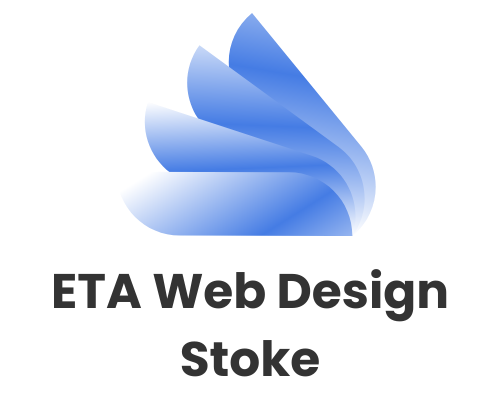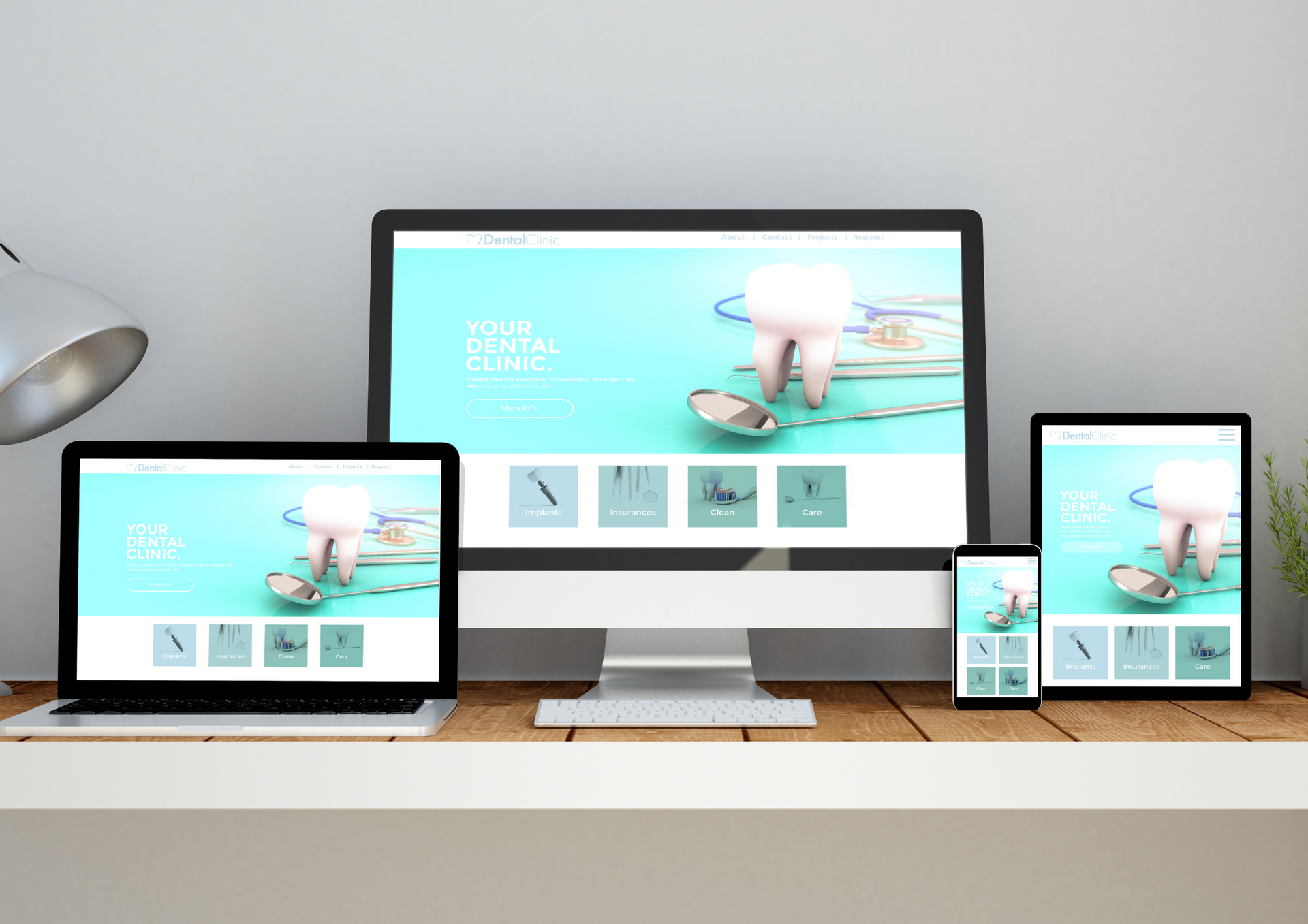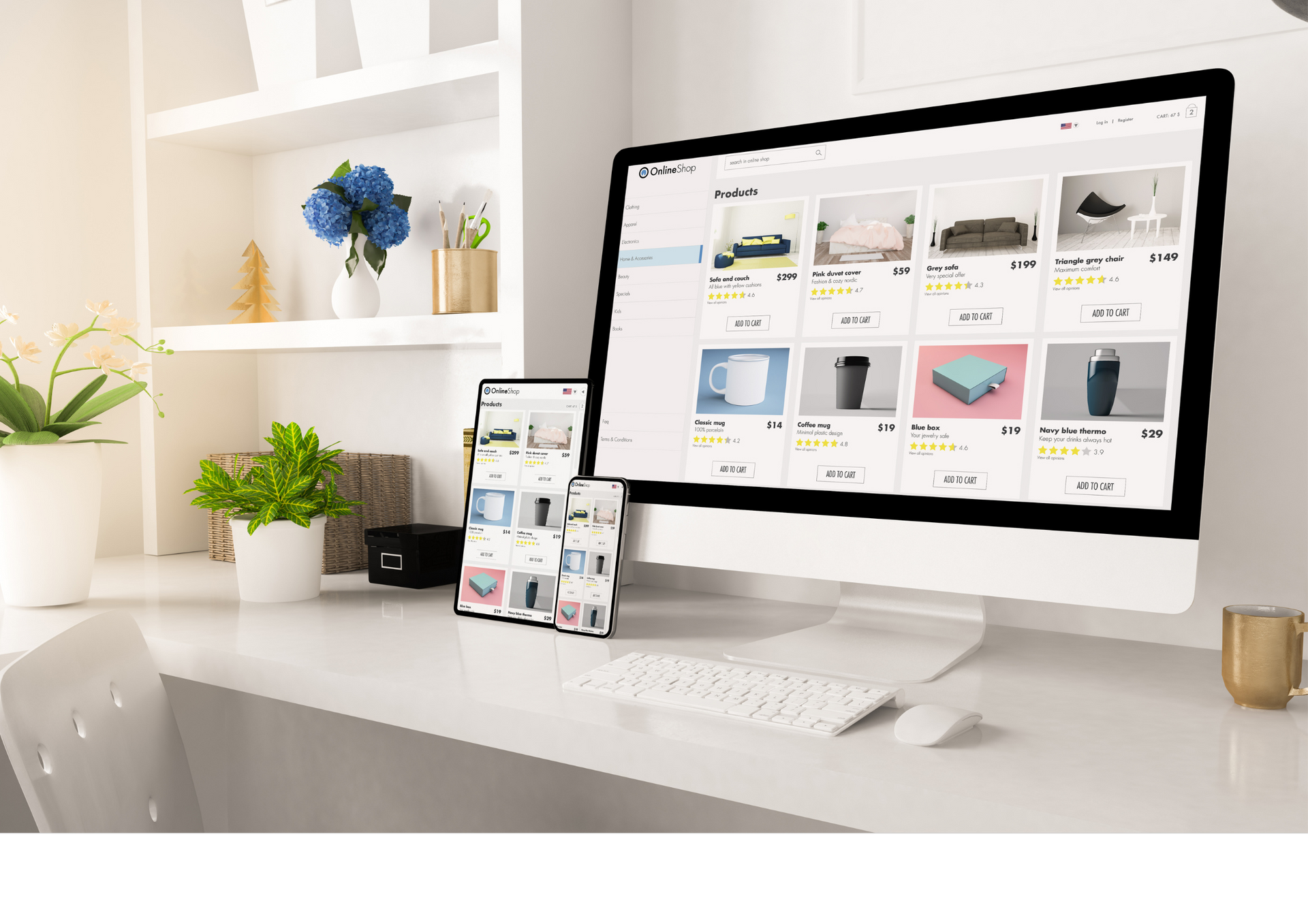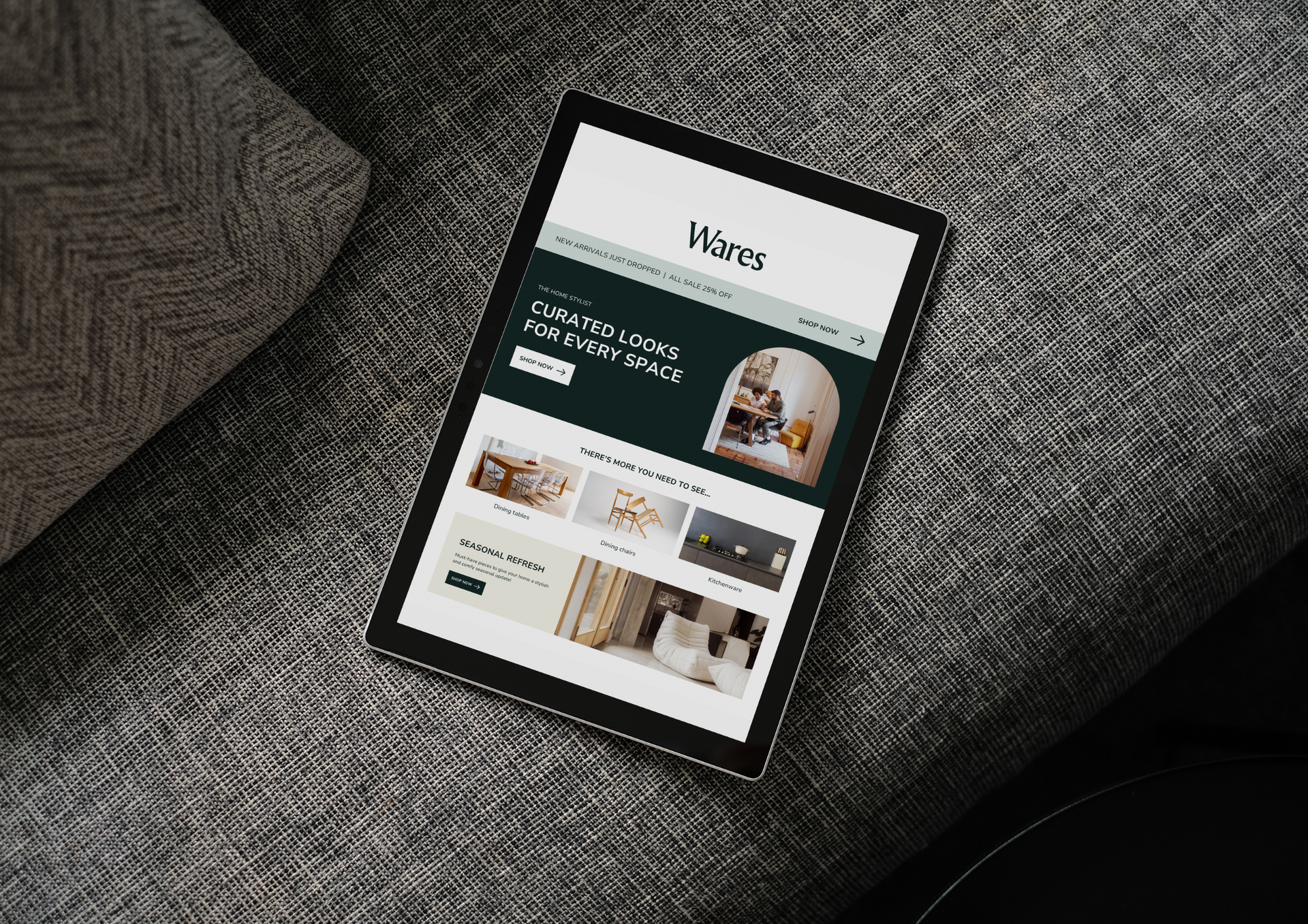In today’s digital world, your website is more than just a digital storefront — it’s the foundation of your brand’s identity and a vital tool for converting visitors into loyal customers. Whether you’re a homeware brand, a health and wellness company, or a retail business, understanding the fundamentals of website design can make all the difference in building a site that engages, informs, and converts.
This article explores five principles that underpin successful web design and shows how applying them can help.
User-Centred Design
The most effective websites are designed with the user in mind. User-centred design focuses on how visitors interact with your site, ensuring every element serves a purpose and contributes to a seamless experience.
Navigation should be intuitive, page layouts clean, and content easy to digest. For instance, when users arrive on your homepage, they should immediately understand who you are and what you offer. Clarity in structure and content builds trust — particularly important for homeware and wellness brands, where aesthetics and authenticity are key.
Incorporating feedback tools or analytics helps refine the user journey over time, ensuring your design continues to align with customer expectations.
Visual Hierarchy and Aesthetics
A well-executed web page design guides visitors’ attention through visual hierarchy — prioritising the most important information through the clever use of typography, colour, spacing, and imagery.
High-quality visuals are especially powerful in sectors such as retail and homeware, where presentation directly influences perception. Consistency in colour palette and font style reinforces your brand identity, while adequate white space prevents visual clutter.
Balance is crucial: a website should be visually engaging without overwhelming visitors. Simplicity often creates sophistication, allowing content to breathe and messages to stand out naturally.
Mobile Responsiveness and Accessibility
In today’s mobile-first world, businesses must ensure they design a website that performs seamlessly across all devices and remains accessible to every user. Here’s how to get it right:
- Prioritise mobile-friendly design: Build layouts that automatically adjust to different screen sizes, ensuring your website looks professional on smartphones, tablets, and desktops.
- Maintain legibility: Use readable fonts and ensure text sizes adapt fluidly for smaller screens.
- Optimise interaction: Keep buttons large enough for easy tapping and place key elements within easy reach on touchscreens.
- Adapt images and visuals: Use responsive image scaling so graphics and banners adjust gracefully without distorting.
- Ensure accessibility: Include features like high-contrast colour schemes, alternative text (alt text) for images, and keyboard navigation for users with assistive devices.
- Boost performance and SEO: A fast, accessible, and mobile-friendly website improves user satisfaction and contributes to stronger search rankings.
By focusing on mobile responsiveness and accessibility, you create a user experience that’s inclusive, engaging, and optimised for modern audiences.
Performance and Functionality
Speed and functionality are key indicators of a professional website. Slow-loading pages can cause visitors to leave before engaging with your content, impacting both user experience and search rankings.
For growing brands, especially in competitive markets like health and wellness, investing in reliable hosting, optimised code, and compressed imagery can significantly improve load times.
Using one of the best website builders or working with an experienced developer ensures that your site’s technical foundation supports scalability. A robust content management system allows you to add new features, pages, and products effortlessly as your business evolves.
Conversion and Engagement Strategy
A visually appealing and functional website is only part of the equation — the ultimate goal is to convert visitors into customers. That’s where thoughtful conversion design comes in.
Every page should have a clear purpose and a logical next step for users. Compelling calls-to-action (CTAs), trust signals such as testimonials, and easy-to-navigate checkout or inquiry processes all contribute to better conversion rates.
Businesses can also benefit from professional web design services that include analytics setup, A/B testing, and content strategy. These tools allow you to monitor user behaviour and continually refine your approach for maximum impact.
The principles of effective
website design revolve around clarity, consistency, performance, and purpose. By focusing on the user experience, maintaining aesthetic harmony, ensuring mobile accessibility, and optimising for conversions, businesses can build websites that not only look great but also deliver measurable results.
Whether you’re launching a new brand or revamping an existing site, these core ideas will help ensure your online presence reflects your professionalism and values — engaging visitors and driving sustainable growth.
At
ETA Website Design Stoke, we combine creativity with technical precision to craft websites that make an impact. Our team specialises in building scalable, responsive, and high-performing websites tailored to your business goals.
We understand the unique needs of homeware brands, wellness companies, and retail businesses, delivering end-to-end website design solutions that elevate your online presence. From bespoke concepts and SEO integration to ongoing support, our approach ensures your site not only looks exceptional but performs flawlessly.
New update on X: The core principles that define truly effective
website design!




